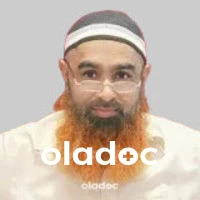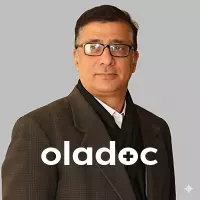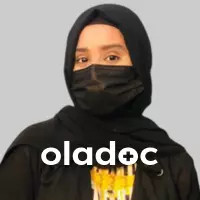39 Best Homeopaths in Lahore
Dr. Zahid Hussain
Homeopath, Acupuncturist
DHMS, Certificate in Clinical Hijama, Certificate in Clinical Nutrition, Certified in Acupuncturist
Dr. Zahid Hussain
Homeopath, Acupuncturist
DHMS, Certificate in Clinical Hijama, Certificate in Clinical Nutrition, Certified in Acupuncturist
Dr. Duaa Asif
Nutritionist, Homeopath, Dietitian
DHMS, Bs (Hons) Human Nutrition & Dietetics
Who is a Homeopath?
A homeopathic doctor (ہومیوپیتھ) is a specialist doctor practicing in the field of homeopathy. This domain is a form of alternative medicine. The basic principle of it is to use nature to heal problems around the body. It also works on the belief that the body is capable of healing itself, itself, since like cures like.
When should you see a Homeopath?
Homeopathic medicine (ہومیوپیتھک ڈاکٹر) is not everyone’s cup of tea. The research is split on its effectiveness, therefore, only visit a homeopath if you are convinced that it is a legitimate type of medicine. Many medicines work due to placebo effect, and without believing in the medicine, using it is moot.
You can visit a homeopath (ہومیوپیتھ) when you are accosted with chronic problems around the body. These issues include allergies, migraines, depression, fatigue, arthritis, hay fever, IBS, menstrual issues as well. Moreover, issues like toothaches, headaches are also addressed by homeopaths.
However, for more serious diseases like cancer and heart disease, and issues that merit imaging and other testing, it is best to visit a medical doctor instead. Furthermore, you also need to visit your GP for immunization.
It is pertinent that pregnant women consult their doctor prior to taking up the prescription from the homeopath.
What are the main areas of concern of a Homeopath?
Homeopaths (ہومیوپیتھک ڈاکٹر) can treat the general ailments around the body. These include problems like cuts and bruises, atopic dermatitis, irritable bowel syndrome etc.
Homeopaths (ہومیوپیتھ) also give the patients due time during sessions; some may even discuss the issue for hours with the patient, as they treat the patient holistically. This also lends a sympathetic ear to the patient, making the treatment more effective due to the placebo effect.
They, however, should not be resorted to for emergency situations, trauma, or terminal diseases like cancer.
What are the most common homeopathic issues in Pakistan?
Homeopathy deals with a wide variety of problems, but there is a dearth of data with regards to the most reported diseases, and the scope of the treatment. Unfortunately, some quacks also present themselves as homeopathic doctors in Lahore endangering the health of the patients.
Some might also use toxins and metals like mercury for the treatment of the problems, causing grave health issues like kidney failure.
Moreover, globally as well, homeopathy is also regarded with apprehension, as there is lack of data validating its effectiveness. Most chalk it to placebo, debunking its effectiveness.
Since many homeopath products are marketed under items of care, rather than medicine, their regulation is also a major challenge.
How to become a Homeopath in Pakistan?
In order to become a homeopathic doctor in Lahore one first needs to complete their studies in the respect field, like BHMS or DHMS.
BHMS refers to the Bachelor of Homeopathic and surgery. One can either opt for BHMS classified, which is a comprehensive, 5-year program or BHMS graded, which is a shorter, 2-year program. One needs to have pre-medical subjects in their secondary education to be eligible for the program.
DHMS is the Diploma in Homeopathic Medical system and is less rigorous program. It is a 4-year program, with a mandatory 6-month internship at the end of the program.
Once the respective program has been completed, people need to get themselves registered through the regulatory authority, NCH. Nation Council for Homeopathy is controlled by the federal government. Once they get their license, they are free to practice homeopathy in Pakistan.
What kinds of Homeopaths are there?
There are different specializations in the field of homeopathy. These include:
Auto-isopathy: This field pertains to making remedies using substances taken from the patient’s own body.
Classical homeopathy: This is the conventional type of homeopathy, grounded in the principle of ‘like treats like’. Experts of this field offer treatment considering the psychological, emotional, and physical symptoms in the body, and not just the superficial symptoms.
Homotoxicology: This field combines principles of the modern science and homeopathic medicine. These experts use different facets of biological medicine, like molecular biology, biochemistry etc. to make non-toxic biological therapies.
Isopathy: The principle of this domain is to use the causative agents, to treat the same disease that they are causing like is the case with poison ivy.
What are Homeopaths called in Pakistan?
Homeopaths are also referred to as:
- Homeopathy ka doctor
- ہومیوپیتھ
- ہومیوپیتھک ڈاکٹر
Frequently Asked Questions
Who is the best Homeopath in Lahore?
10 best Homeopaths in Lahore are:
- Dr. Muhammad Umar Farooq
- Dr. Muhammad Tariq Zubair
- Dr. Muhammad Mohsin Shah
- Mr. Salman Riaz
- Lt. Col. (R) Dr. Asim Imran
- Dr. Muhammad Afzal Sandhu
- Dr. Tahira Farhan Ansari
- Dr. M Tahir Farrukh
- Dr. Rizwan Saqib
- Dr. Muhammad Abu Bakar
Who are the most experienced Homeopath in Lahore?
10 most experienced Homeopaths in Lahore are:
- Dr. Muhammad Siddique
- Dr. Shahid Hanif
- Dr. Muhammad Tariq Zubair
- Dr. Rizwan Saqib
- Hk. Saif Ullah Khan Lodhi
- Mr. Muhammad Amjad
- Dr. Abdul Aziz
- Dr. Shaheen Mubarik
- Dr. Marriam Saddaf
- Dr. Muhammad Mohsin Shah
How can I book an appointment with a Homeopath in Lahore?
What is the fee range of the best Homeopaths in Lahore?
Are there any additional charges to book an appointment with a Homeopath in Lahore through oladoc?
What does a Homeopath do?
Homeopaths use plants and minerals, albeit in diluted amounts, to make medicines, using the belief of potentization. According to this theory, the more the ingredient is diluted, the more potent it becomes. Homeopathic medicines are exclusively created using these homeopathic principles.
Some medicines may also use animals, like crushed bugs. They perform rigorous dilutions of substances, known as succussion, to make the medicine so that it triggers a healing response in the body. These medicines are critical for helping the patients get better.
The medicines are created in different forms like ointment, gels, tablets, creams, etc.
Homeopaths also offer personalized treatment plans.
Which hospital is the best for Homeopath in Lahore?
Top 5 Alternative Medicine Hospitals in Lahore are:
- Ideology Homeopathic Clinic And Research Center
- Pak Wellness Medical Centre
- Masood Hospital
- Healthcare Consultant Clinic
- Holistic Care Clinic
How do I choose a Homeopath?
Finding a good doctor is vital for proper diagnosis & treatment of your underlying concern. Before you make the decision of picking out a Homeopath, consider the following:
- Make sure they are experienced
- Make sure your doctor has good reviews.
- Make sure they offer the services you are looking for
- Verify, if they are certified from PMDC or have any other professional memberships
- Check if they are affiliated with a hospital you trust
Who are the best Homeopath near me in Lahore?
Which Homeopaths in Lahore charge the lowest fee?
5 Homeopaths in Lahore which charge the lowest fee are:
- Dr. Ayesha Yousaf
- Dr. Sarwar Subhani
- Dr. Shahid Hanif
- Dr. Muhammad Tariq Zubair
- Dr. Muhammad Mohsin Shah
Who are the best female Homeopaths in Lahore?
10 best female Homeopaths in Lahore are:
- Dr. Tahira Farhan Ansari
- Dr. Shaheen Mubarik
- Dr. Ayesha Yousaf
- Dr. Aqsa Khalid
- Dr. Zainab Noor
- Ms. Umm E Farwa
- Dr. Najm Ul Saher
- Ms. Zahida Tarmizi
- Ms. Iffat Ul Ain
- Dr. Marriam Saddaf
Which Homeopaths in Lahore are available for online video consultation?
10 best Homeopaths in Lahore for online video consultation are:
- Dr. Muhammad Umar Farooq
- Dr. Muhammad Tariq Zubair
- Mr. Salman Riaz
- Lt. Col. (R) Dr. Asim Imran
- Dr. Tahira Farhan Ansari
- Dr. Rizwan Saqib
- Dr. Muhammad Abu Bakar
- Dr. Shaheen Mubarik
- Dr. Muhammad Siddique
- Dr. Asad Ahmad Rao






.png?t=1667365555)




